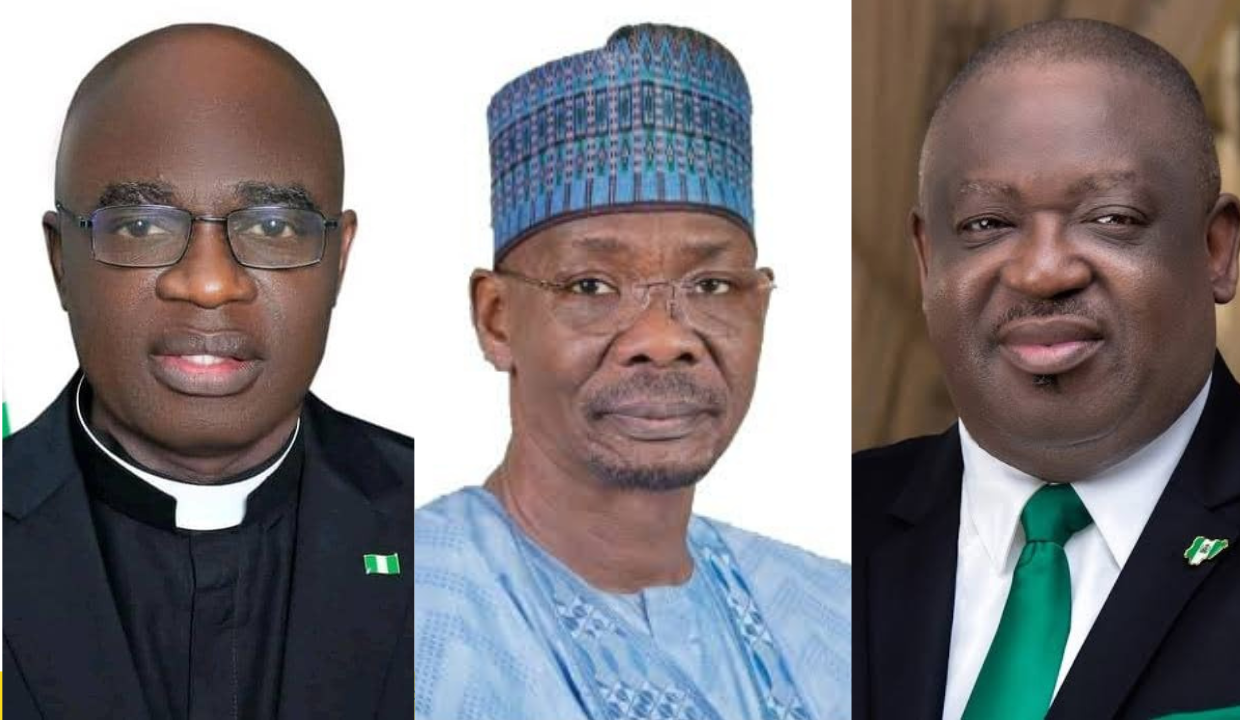Creation of state police, comprehensive electoral reforms echoed strongly at the public hearing on the review of the 1999 constitution held at the north-central centre

Calls for the creation of state police, comprehensive electoral reforms, and true federalism echoed strongly at the public hearing on the review of the 1999 Constitution, organised by the House of Representatives Committee at the north-central centre B, comprising Benue, Plateau, Nasarawa states, and the Federal Capital Territory (FCT).
The hearing, held Saturday in Lafia, Nasarawa state, brought together key stakeholders who presented position papers in favour of restructuring Nigeria’s federal system to reflect current realities and address pressing security and governance challenges.
In their separate submissions, Governors Hyacinth Alia of Benue, Caleb Mutfwang of Plateau, and Abdullahi Sule of Nasarawa threw their weight behind the establishment of state police, insisting it was crucial for tackling insecurity in the region.
Chairman of the hearing and former Deputy Speaker of the House Rep. Ahmed Wase (APC Plateau), while declaring the session open, urged participants to express their views freely, assuring them that the National Assembly was committed to amplifying the voice of the people.
“The House of Representatives is the House of the people,” Wase said. “We will do what the people want and correct the imbalances and concerns of the masses.”
Speaking through the Attorney General and Commissioner for Justice, Mr. Fidelis Mnyim, Governor Alia described the idea of state police as long overdue, lamenting that state chief executives, despite being designated as chief security officers, have no operational control over security agencies.
“A governor cannot command any of the security agencies or deploy them to troubled areas. For instance, we have an anti-open grazing law in Benue but we cannot implement it because the governor is said to be the chief security officer but to the contrary, cannot direct the police even on arrest,” he said.
On electoral reform, Alia advocated for a shift from oral-based evidence to documentary-based procedures in the resolution of electoral disputes. “There should be a shift from oral-based evidence to documentary evidence. Let a documentary jurisprudence be established,” he proposed.
Similarly, Plateau State Governor, Caleb Mutfwang, represented by the Attorney General and Commissioner for Justice, Mr. Philemon Daffi, stressed that Plateau was fully in support of the establishment of state police as a means to address the state’s persistent security issues.
“Plateau is in full support of state police. We support it because it will go a long way in tackling the perennial insecurity in the state,” he said. “No state in the country has suffered insecurity like Plateau state. And so, we are for state police and we want other security agencies to be added as well.”
On the electoral process, Mutfwang rejected the conduct of local government elections by the Independent National Electoral Commission (INEC), insisting that it should remain the responsibility of states’ independent electoral commissions.
He also called for the separation of the roles of Attorney General and Minister/Commissioner for Justice to enhance institutional independence.
For Nasarawa State, Governor Abdullahi Sule, represented by Attorney General and Commissioner for Justice, Barr. Isaac Danladi, reiterated the need for state police, stating that it was time states were empowered to take full responsibility for the security of their people.
ALSO READ: Kalu says 86 constitution amendment bills up for public hearing
“It is high time state police was established to give states the mandate to protect their people directly,” Sule declared.
He also proposed that INEC be relieved of the responsibility of registering and regulating political parties. “INEC will be freed from the enormous responsibility it currently carries to concentrate on conducting effective and transparent elections,” he said.
Sule further called for the establishment of an electoral offences commission through an Act of the National Assembly rather than a constitutional amendment. In addition, he recommended that all elections be conducted on the same day to cut costs and reduce voter apathy and fatigue.
However, the Nasarawa governor opposed the introduction of independent candidacy, warning that, “it will create chaos and be cumbersome for INEC to coordinate the candidates.”

